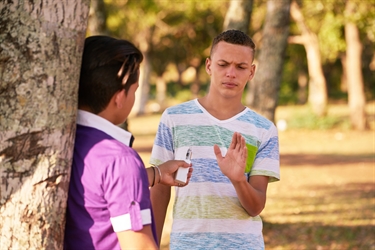One of the great things about Kansas is that people are so willing to help their neighbors. Whether it’s loaning a cup of sugar to the neighbor next door, helping the family down the street following an injury, or coming together as a community to address disasters, Kansans come to the table to get the job done.
That sentiment certainly is echoed in our public health community in Kansas. We recognize that partnership-building and collaboration is vital to the success of all public health programs. We must engage our colleagues at state and local agencies, universities, those in the private sector and non-profits, as well as different citizen groups.
One example we have been privileged to be involved with is the Kansas Tobacco Use Prevention Program (TUPP), which is housed here at the Kansas Department of Health and Environment (KDHE). TUPP created an environment that builds from the strengths of partnerships across Kansas. This approach aligned partners with different priorities around the common purpose of tobacco use prevention. Every partner brings unique skillsets, abilities, perspectives, and priorities to the table. Subsequently, it laid the foundation to tackle the emerging vaping issue.

This spring, KDHE released the Kansas Vape-Free Schools Toolkit. This toolkit is a guide to help schools and school districts become tobacco-free and e-cigarette free. Our goal with this is to engage youth in advocating for tobacco-free schools. The toolkit includes model policies, resources for integrating e-cigarette and tobacco education into the school curriculum, resources to help youth and adults quit using tobacco products, and strategies for enforcement, including communication tools and signage.
During the toolkit’s development, staff identified and developed key partnerships in the Kansas Association of School Boards (KASB). These partnerships helped us to better understand what would be impactful and realistic for implementation in Kansas schools. Additionally, KASB makes policy recommendations for Kansas schools and many schools adopt their recommended policies. A joint KDHE and KASB tobacco policy was developed and is included in the toolkit.
With the backing of KASB leadership, our staff presented the toolkit to the board. This opened the door for staff to be invited to educate Kansas schools about e-cigarettes/vaping and to disseminate model policies across the state. This was a huge win for tobacco and vaping prevention in schools.
We also recognized from our partners that to reach youth, we need youth. Our tobacco program staff have built on existing partnerships with local public health departments, school districts, and throughout KDHE to build and promote Resist chapters. Resist is a youth-led, statewide movement created to combat Big Tobacco in Kansas. There currently are 28 Resist chapters in Kansas supporting tobacco and vaping prevention. Youth also participate in ‘Kick Butts Day’ at the Kansas State Capitol where youth engage their legislative representatives to educate them about the dangers of tobacco use and prevention techniques.
During the past year, community advocates successfully worked with the Kansas legislature to expand coverage of Kansas Medicaid (KanCare) tobacco dependence services. In addition, work was done to define tobacco treatment specialists as ‘qualified providers’ who can be reimbursed for providing tobacco dependence counseling. This was no small feat considering Kansas has currently not expanded Medicaid. This took engagement from elected officials, university partners, and nonprofits working with a unified voice to advocate for this needed expansion of Medicaid services.
Individuals covered by KanCare now are eligible to receive up to four rounds of any form of FDA-approved cessation medication each year—combination pharmacotherapy is included—with no pre-authorization, copays, or lifetime caps, as well as unlimited cessation counseling sessions. This replaces the previous limitation of one medication-assisted quit attempt per year and the limitation on counseling to pregnant women.
Many of the victories and successes have resulted from strategic partnerships and advocacy. Engaged and empowered partners lending expertise has resulted in impactful and meaningful systems-level improvements for our state around tobacco-use prevention. I am thankful that we have so many Kansans that are eager to help make positive changes!
Special thank you to:
- Dr. Kimber Richter, University of Kansas Medical Center
- Dr. Babalola Faseru, University of Kansas Medical Center
- Rick Cagan, National Alliance on Mental Illness, (NAMI Kansas)
- Kansas Health Foundation
- Tobacco Free Kansas Coalition
- The Community Health Promotion Team at KDHE
- Kristi Pankratz, KDHE Communications
